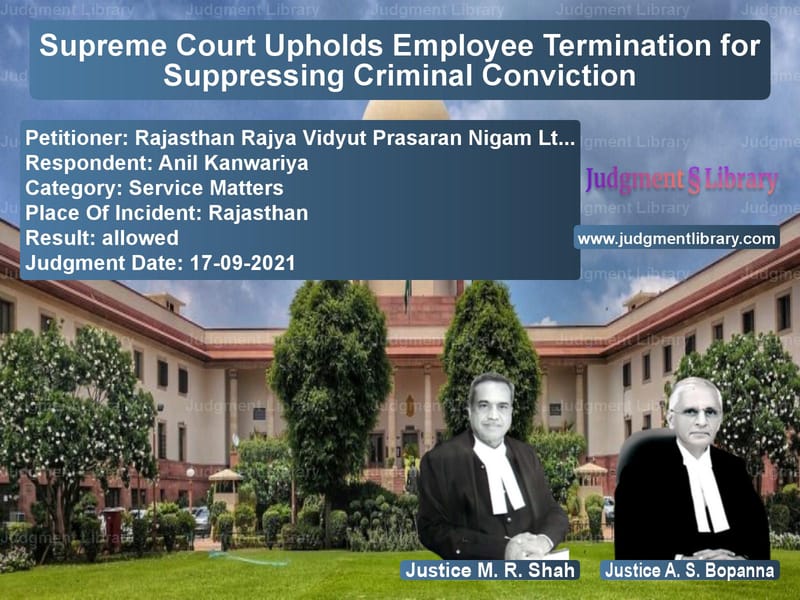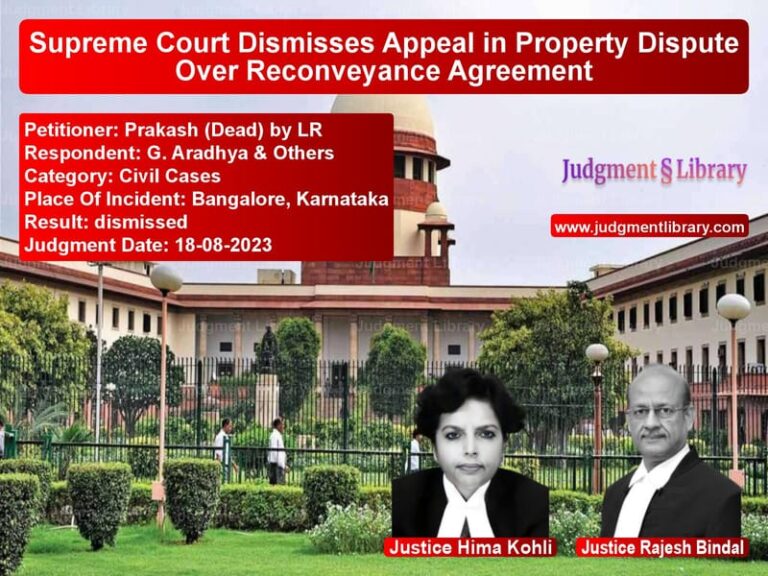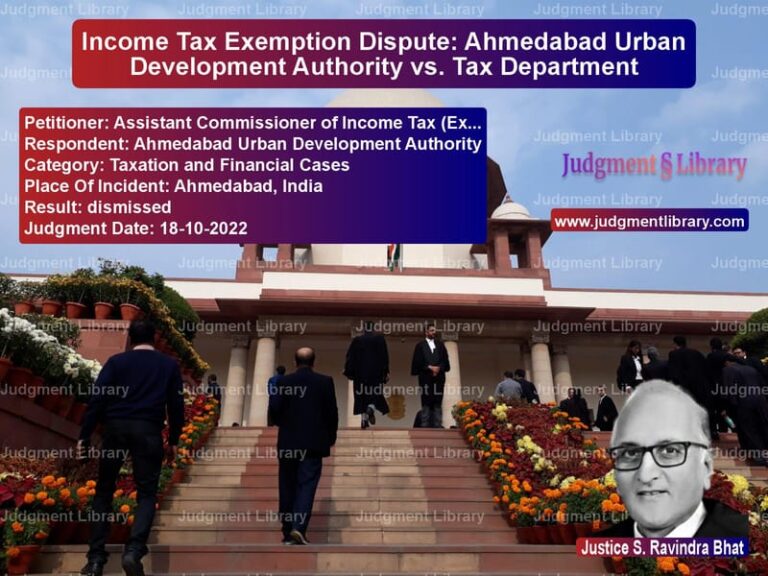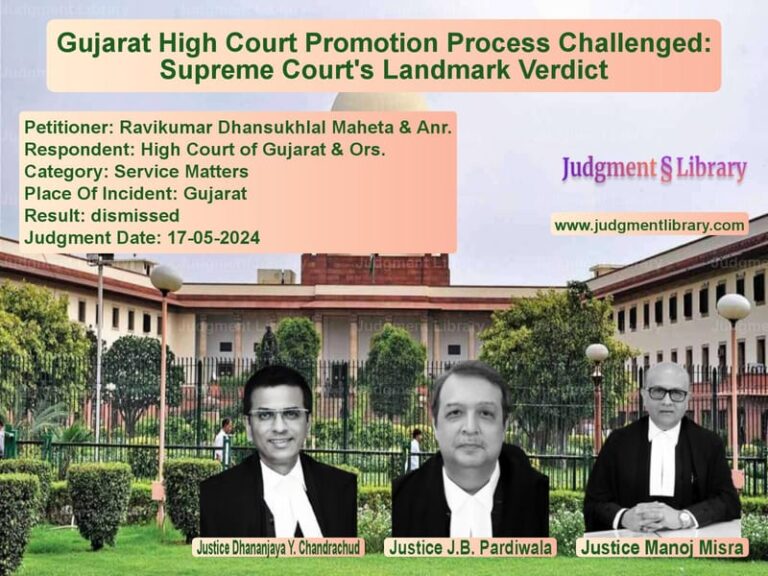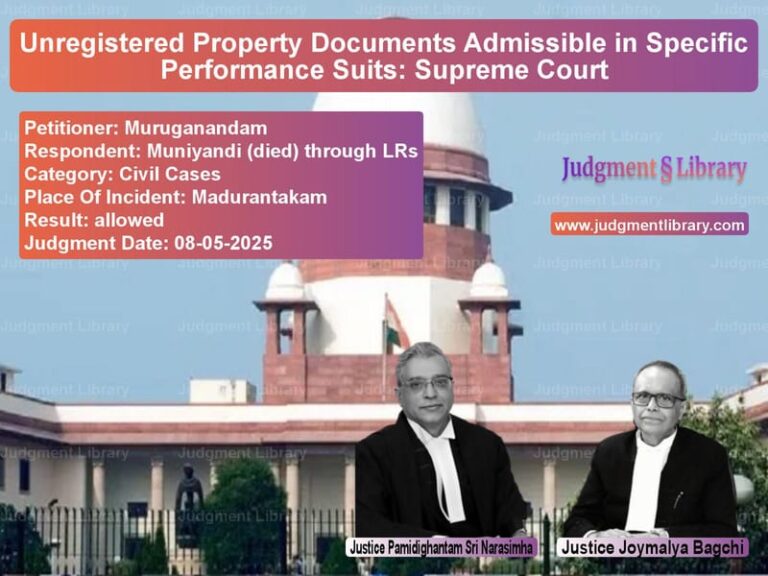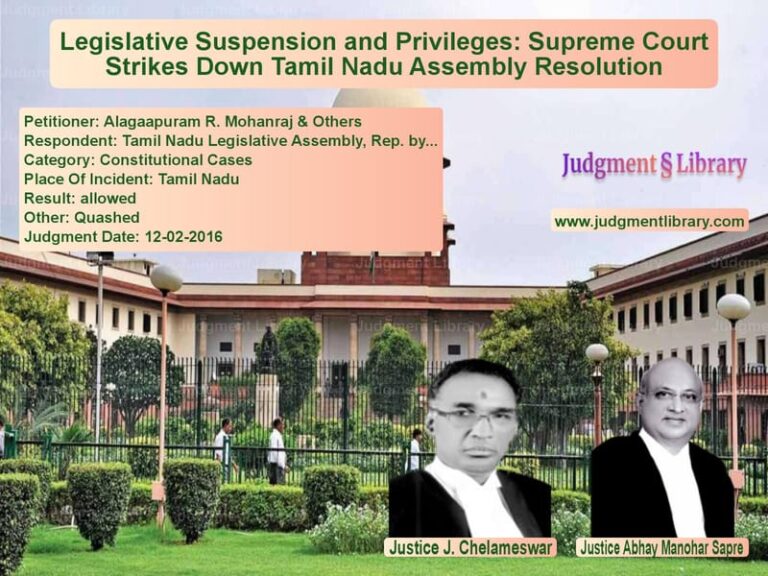Supreme Court Upholds Employee Termination for Suppressing Criminal Conviction
The Supreme Court of India, in the case of Rajasthan Rajya Vidyut Prasaran Nigam Ltd. vs. Anil Kanwariya, ruled on the crucial issue of suppression of criminal antecedents during the hiring process. The Court overturned the High Court’s decision that had reinstated the employee, stating that deliberate suppression of material facts regarding past convictions could justify termination from employment.
Background of the Case
The Rajasthan Rajya Vidyut Prasaran Nigam Limited (RRVPNL) had issued an advertisement in October 2013 for recruitment to the post of Technical Helper. The respondent, Anil Kanwariya, applied for the position and was selected based on a written test held on February 2, 2014. He was appointed as a probationer trainee on May 6, 2015, subject to police verification of his character and antecedents.
Upon police verification, it was revealed that the respondent had been convicted under Sections 341 and 323 of the Indian Penal Code (IPC) by the trial court on August 5, 2013. He had, however, been granted probation under the Probation of Offenders Act, 1958. At the time of applying for the job, the respondent had suppressed this material fact by declaring that he had never been convicted in a criminal case.
Termination of Employment
Upon discovery of the respondent’s suppression of facts, RRVPNL issued a show cause notice on August 31, 2015. The employee was given a hearing on March 15, 2016, and subsequently, his services were terminated on May 6, 2016. The company cited misrepresentation and dishonesty as reasons for termination, emphasizing that had the true facts been disclosed, the respondent would not have been hired.
Legal Challenge
1. Decision of the Single Judge
The respondent challenged his termination before the Rajasthan High Court, which ruled in his favor. The Single Judge held that since the criminal case was of a trivial nature involving a family dispute and that the respondent had been given the benefit of probation, he should not be penalized.
2. Division Bench’s Affirmation
The employer challenged the Single Judge’s decision before the Division Bench of the Rajasthan High Court. However, the Division Bench dismissed the appeal, upholding the ruling that suppression of a minor conviction did not warrant termination.
3. Appeal to the Supreme Court
Dissatisfied with the High Court’s ruling, RRVPNL approached the Supreme Court, arguing that the suppression of material facts during employment application was a serious offense, irrespective of the nature of the crime.
Supreme Court’s Key Observations
1. Suppression of Material Facts Justifies Termination
The Supreme Court ruled that suppression of criminal antecedents during employment application constitutes a serious violation. The Court stated:
“If a candidate suppresses material information or gives false information, he cannot claim any right for appointment or continuity in service.”
2. Avtar Singh Precedent
The Court relied on the landmark case of Avtar Singh v. Union of India (2016) 8 SCC 471, which established that:
- Any suppression of material facts in employment applications, even for minor offenses, can lead to termination.
- The employer has the discretion to determine whether a suppressed criminal conviction affects the suitability of an employee.
- Even if an individual is subsequently acquitted or given the benefit of probation, the initial misrepresentation is itself a serious offense.
3. Employer’s Right to Assess Character and Integrity
The Supreme Court emphasized that public sector employers have a duty to ensure the integrity of their employees. The Court ruled:
“An employer is entitled to judge the suitability of a candidate based on complete disclosure. A false declaration at the time of recruitment vitiates the appointment.”
4. Impact of Section 12 of the Probation of Offenders Act
The respondent argued that since he had been granted probation under Section 12 of the Probation of Offenders Act, he was legally entitled to exemption from disqualification. The Court, however, clarified:
“The benefit of Section 12 does not mean that the fact of conviction can be suppressed. While it removes disqualification, it does not erase the conviction itself.”
5. Role of Honesty in Employment
The Court ruled that trust and honesty are fundamental to public employment. It held:
“If the employer finds that the employee, at the very beginning of service, has suppressed material facts, it is justified in terminating the employment on the grounds of lack of trustworthiness.”
Final Judgment
Based on these findings, the Supreme Court ruled:
- The decisions of the Single Judge and Division Bench of the High Court were set aside.
- The termination order issued by RRVPNL was upheld as legally valid.
- The respondent’s reinstatement was quashed.
Implications of the Judgment
This judgment has far-reaching implications for employment law in India:
1. Strengthening Recruitment Integrity
The ruling reinforces that all job applicants must disclose any past criminal cases. Any suppression of facts will be treated as dishonesty.
2. Probation of Offenders Act Does Not Nullify Convictions
The judgment clarifies that even if a person receives the benefit of probation, they must still disclose their conviction during the hiring process.
3. Employer’s Discretion Upheld
Government and public sector organizations can assess the character of candidates and refuse employment based on full disclosure.
4. Strengthening Judicial Precedents
The case upholds and reinforces the principles set out in Avtar Singh v. Union of India, ensuring that misrepresentation in job applications is not tolerated.
Conclusion
The Supreme Court’s decision in Rajasthan Rajya Vidyut Prasaran Nigam Ltd. vs. Anil Kanwariya serves as a strong precedent against misrepresentation in employment applications. The ruling underscores that trust is a critical component of public sector jobs and that any suppression of material facts can justifiably lead to termination. By emphasizing transparency and honesty, the Court has reaffirmed the importance of integrity in recruitment processes across the country.
Petitioner Name: Rajasthan Rajya Vidyut Prasaran Nigam Ltd..Respondent Name: Anil Kanwariya.Judgment By: Justice M. R. Shah, Justice A. S. Bopanna.Place Of Incident: Rajasthan.Judgment Date: 17-09-2021.
Don’t miss out on the full details! Download the complete judgment in PDF format below and gain valuable insights instantly!
Download Judgment: rajasthan-rajya-vidy-vs-anil-kanwariya-supreme-court-of-india-judgment-dated-17-09-2021.pdf
Directly Download Judgment: Directly download this Judgment
See all petitions in Employment Disputes
See all petitions in Public Sector Employees
See all petitions in Recruitment Policies
See all petitions in Termination Cases
See all petitions in Judgment by Mukeshkumar Rasikbhai Shah
See all petitions in Judgment by A. S. Bopanna
See all petitions in allowed
See all petitions in supreme court of India judgments September 2021
See all petitions in 2021 judgments
See all posts in Service Matters Category
See all allowed petitions in Service Matters Category
See all Dismissed petitions in Service Matters Category
See all partially allowed petitions in Service Matters Category

